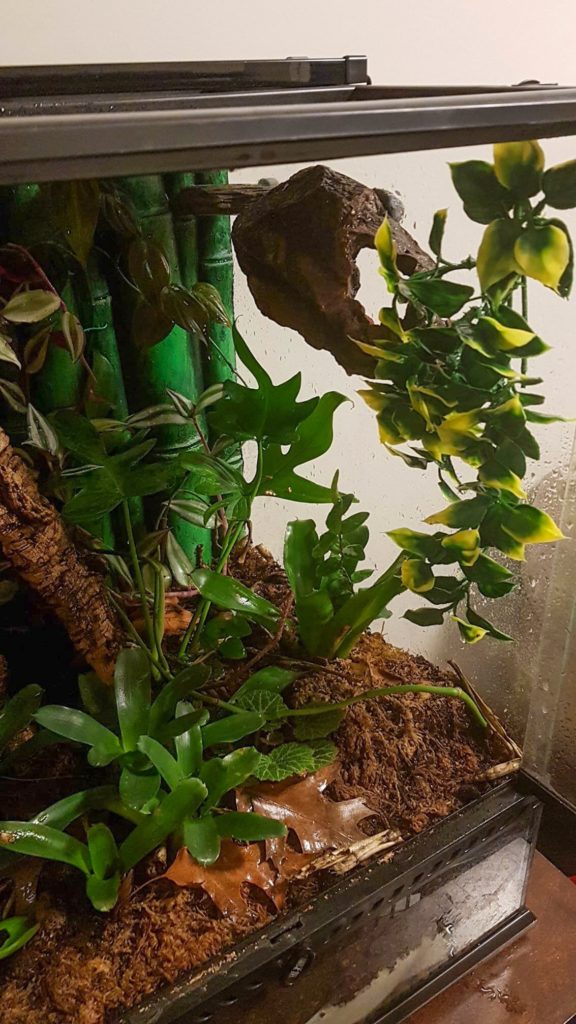
They will typically come out of hiding in the evening and night time to forage for foods that consist of fruits, pollen, insects, and fruit nectars. In the wild, crested geckos can be found hidden up in trees and shrubs.

Babies won’t eat before their first shed, which typically takes 3-5 days from hatching.Crested geckos are an arboreal species, meaning that they spend most of their time elevated up off the forest floor. You do want to keep them a little wetter than adults to aid in shedding. I do not use substrate with babies to avoid impactation (debris become lodged in their digestive track). Some breeders report lower temperatures correspond to higher rates of females, but I have not hatched out enough animals to confirm or deny this.īabies are fairly straight forward, as I keep them the same as adults, just on a smaller scale. Unlike Leopard Geckos, Crested eggs do not appear to be temperature sex determinate. Longer incubation times will produce stronger hatchlings. I prefer to incubate around 73F, which takes close to 90 days to hatch. Eggs will typically take 60-90 days to hatch. A long duration above 80F can be fatal to the eggs. The first few clutches may only be one egg.Įggs should be incubated at 70-75F. Occasionally a female laying her first clutch will drop them randomly in the cage, but this is rare.Ĭrested Geckos will lay 2 eggs in a clutch and will do so about once a month. I do not use any substrate and have a lay box.

If you use a substrate throughout the cage, the female may lay there rather than in the egg box. If you are using a humid hide for a single animal, this can double as a lay box.

Make sure your animal does not come in direct contact with the heat source. This can be achieved with either a light (red/black preferably) and/or heat tape. Artificial heat may be needed in the winter, depending on your location. At night, the temps should drop 5-8 degrees to reinforce the day/night cycle.

Crested gecko hides windows#
This can be accomplished with just natural sunlight from windows and/or artificial lights.Ĭrested Geckos do best at room temperature. They do, however, require a day/night cycle. Crested geckos are nocturnal and do not appear to gain any health benefits from UVB lights.


 0 kommentar(er)
0 kommentar(er)
